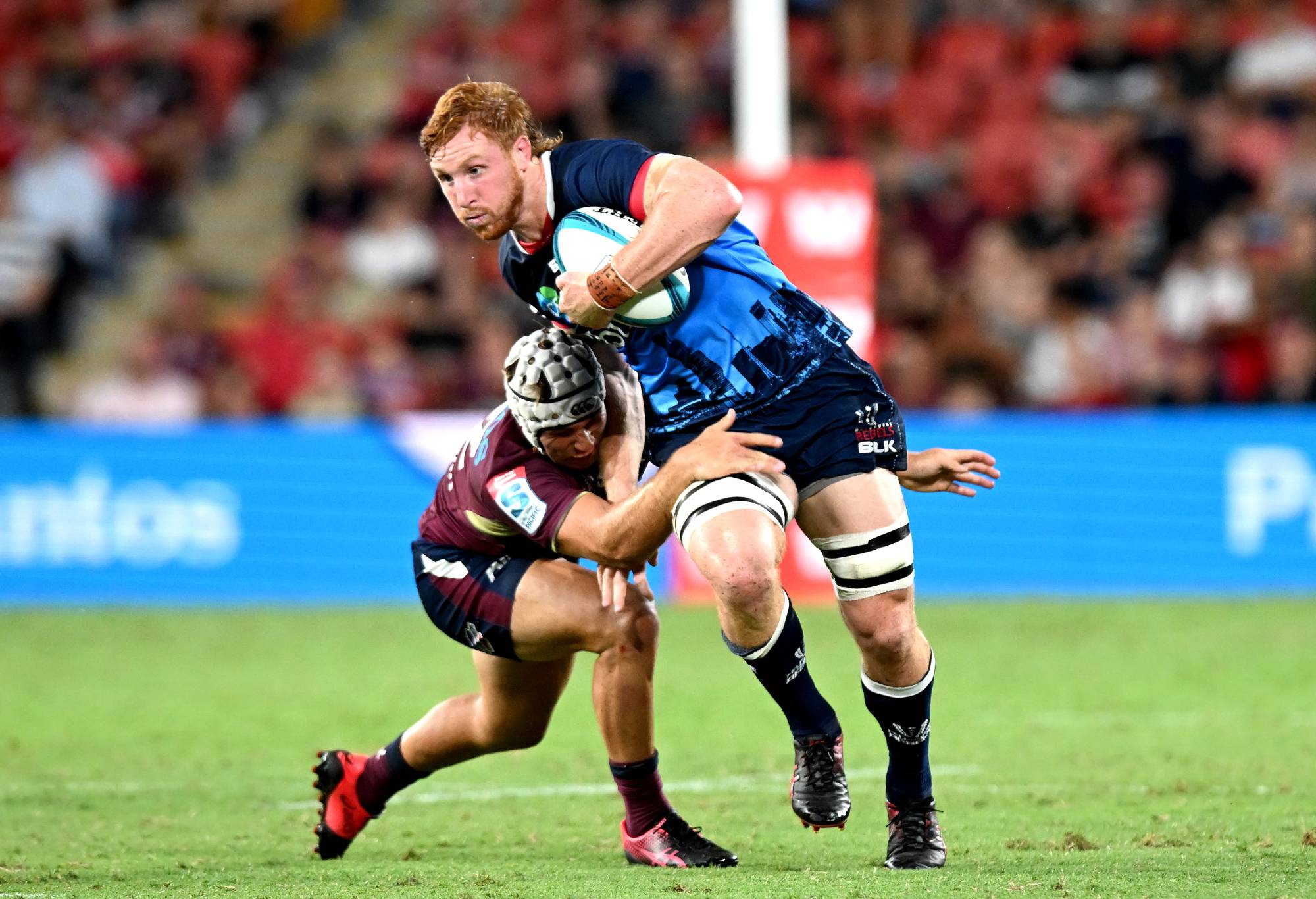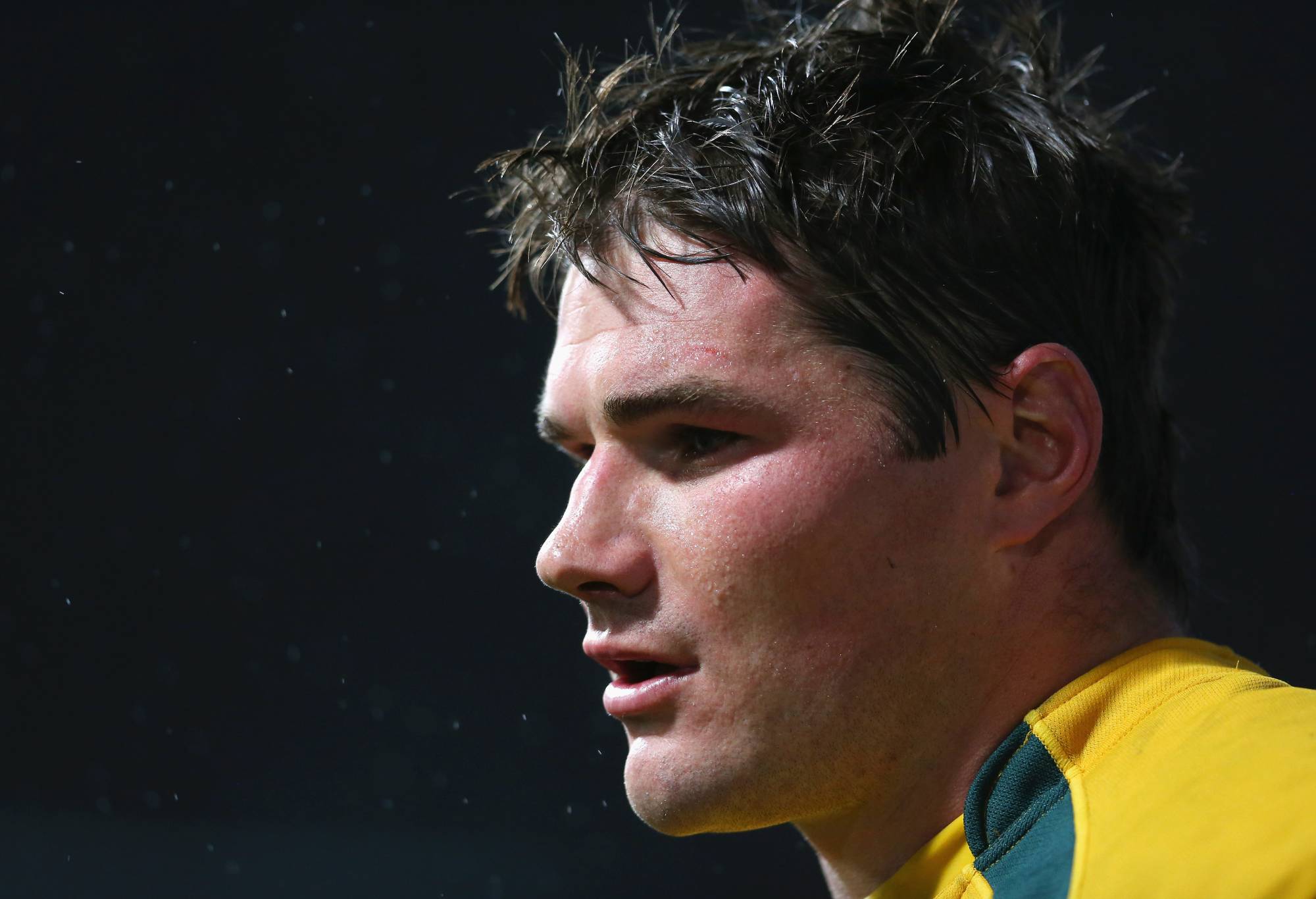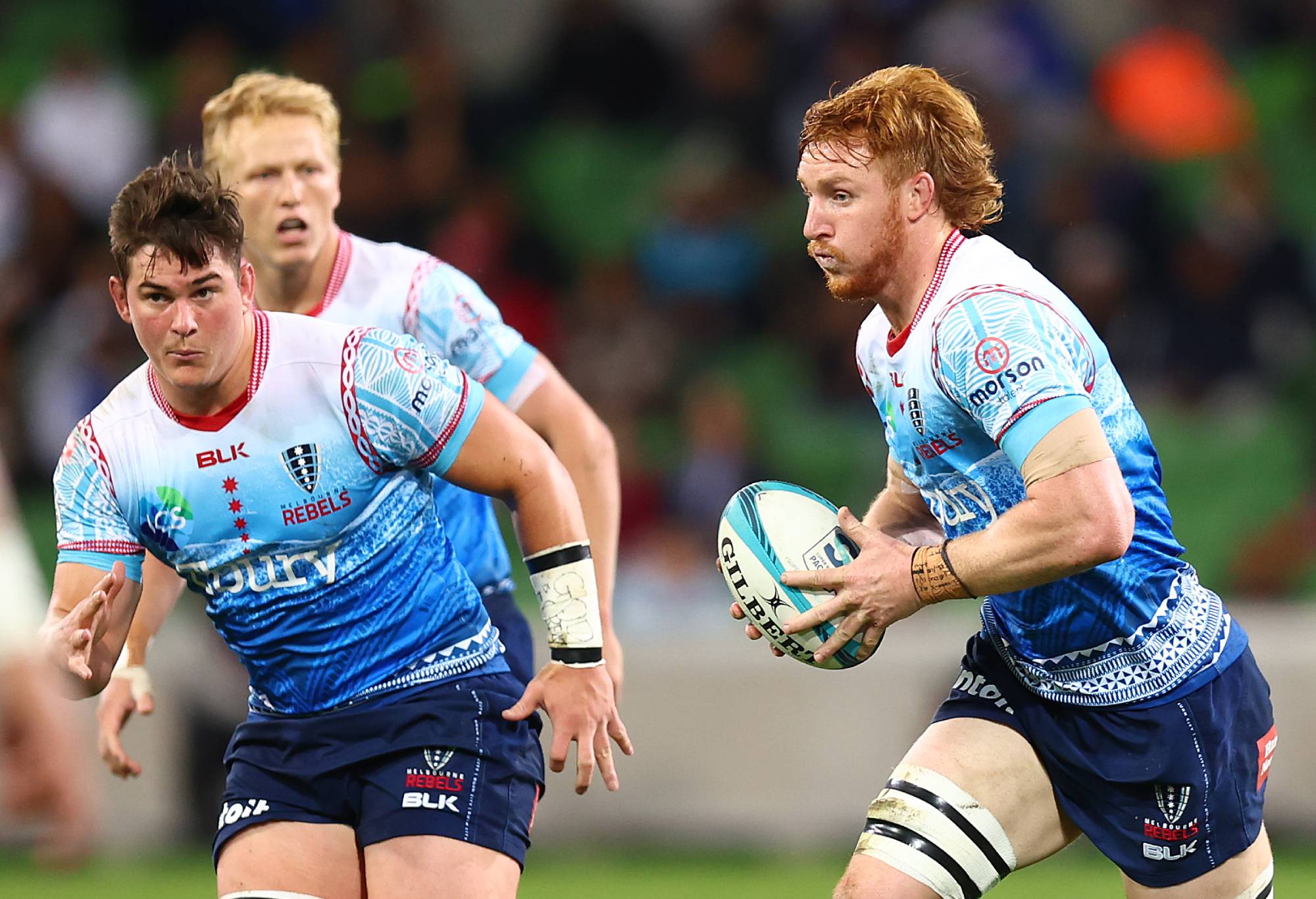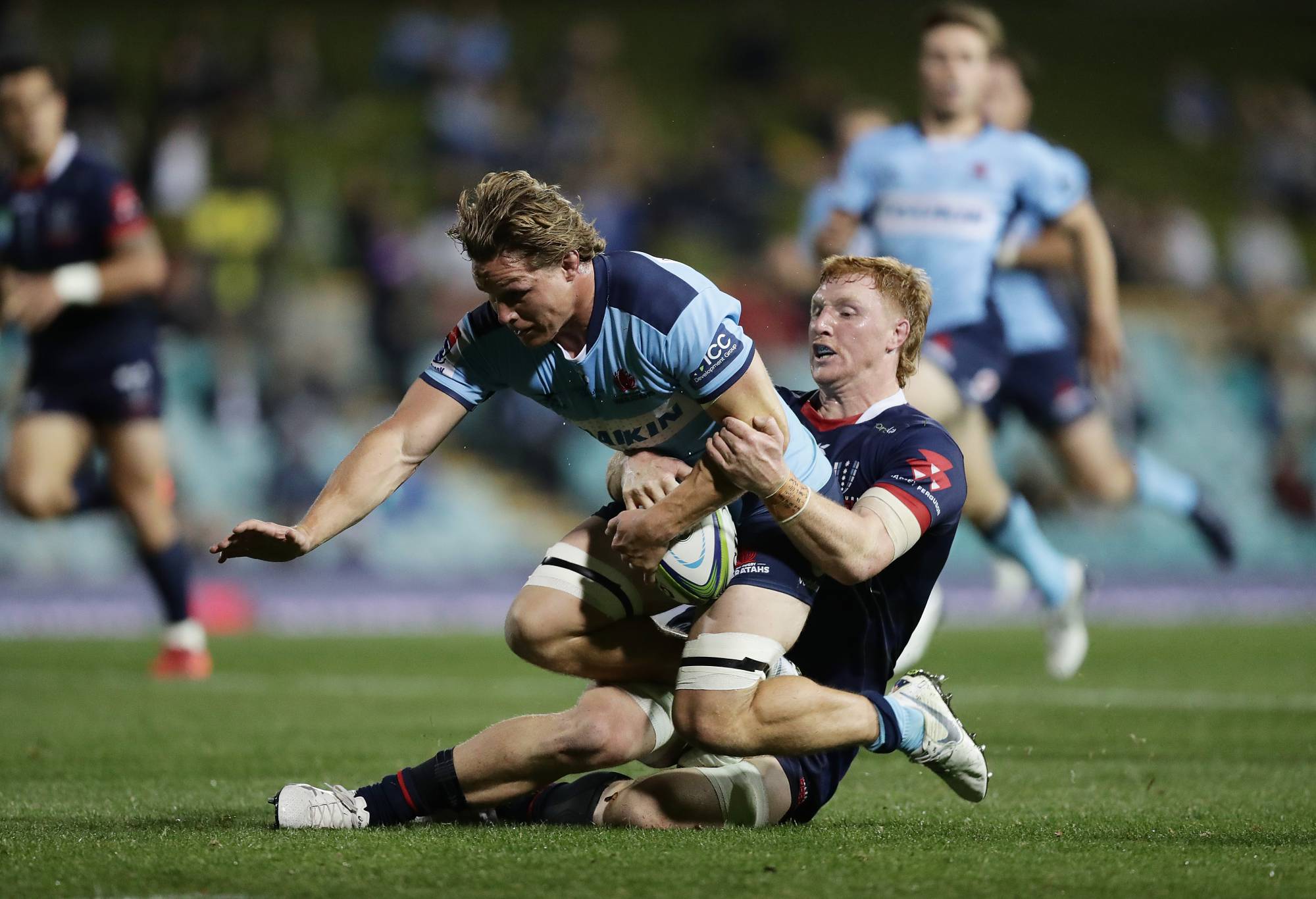
As a schoolboy, Brad Wilkin was touted for big things. Word coming out of Queensland was that he was the next David Pocock. Some even had him ahead of Pocock at the same age.
Thirty-five Super Rugby matches across seven seasons, however, paints a bumpy picture that goes a long way in revealing why that chatter has gone away in recent years.
Selection for Australia A against a Japanese XV side boasting countless World Cup stars in October has given the 27-year-old a healthy injection of hope.
“It was very satisfying,” Wilkin told The Roar.
“It was a nice little reward and honour to go on the Japan level and experience that high level of almost international quality football and play against a quality Japanese side, and just to get a taste of that environment with different coaches and different players.
“The Australian A tour sort of gave me that taste and a bit of confidence to know that I’m not that far away in my own belief. It’s very hotly contested and there are some good players who play that position at the moment, but I’ve got to believe that my style of football adds a bit of value to the team.”

Brad Wilkin was compared to David Pocock during schoolboy rugby but has had his career progress slowed by constant injuries. Photo: Bradley Kanaris/Getty Images
Wilkin is by no means your flashy openside, in the mould of Michael Hooper or even a young Fraser McReight.
Rock solid in defence and a pillar of strength over the ball, Wilkin is old school in his approach. He does the “shitters” that often go unnoticed but are valued highly by those around him.
For Wilkin, 2022 was about finding the flow in his game and building on his confidence after a wretched first half of his career, where scar tissue was matched by scarring of the mind.
After two ACLs before he played a game for the NSW Waratahs – one in the week leading up to his debut – a shoulder reconstruction and countless niggles and strains, Wilkin was able to “figure out what works for me” after countless conversations and tweaks to his program with the Rebels’ head of performance Will Markwick.
Wilkin revealed that a greater understanding of the mind, removing the idea of “playing the victim”, helped manage the anxiety of injuries.
“We put it down to a few factors,” he said.
“We sought a lot of advice from ex-players, a lot of people who have gone through a similar journey in terms of injuries. I think you can get caught in a mental hole where you think it’s just not going to work out and you can play the victim a bit.
“Talking to a lot of guys and ex-players, who have gone through that journey, things that they did mentally, how they overcame the stresses and anxiety of the past injuries, and sort of use that to your advantage.
“Managing the mental side of things, speaking to psychologists was a big part of it, and just finding that balance of enjoying rugby, enjoying the opportunity you have to play and train every day.”
He added: “I think there’s a massive link [between the mental scars and getting injured] there because your mind is a powerful thing and subconsciously you probably don’t think you’re thinking about it, but deep down there are those scars and it has an impact on how you perceive things and situations and it can affect your thinking sometimes. Just being aware of that and embracing it and not letting that fear control you.”

Former Wallabies captain Ben Mowen reached out to Brad Wilkin to offer some advice. Photo: Mark Kolbe/Getty Images
Wilkin revealed that former Wallabies skipper Ben Mowen, who fought his own battle before remarkably becoming Wallabies captain in 2013 in his one and only year as a Test player, had been instrumental in finding his feet as a Super Rugby player.
“Ben Mowen was a big one for me,” Wilkin said.
“I caught up with him leading up to the pre-season last year and he was a really good help.
“We had never met before and he reached out to me by sending me a message. When I came back from my last ACL injury, he read about my story and was keen to offer his advice wherever he could because he obviously had a tough run of injuries there as well that a lot of people might not even remember.
“There was a point there that he may have played three or four games in as many years. Just hearing his story and how he overcame and dealt with things, it just made me take a different approach and experiment and try different things, so I think that’s what I put it down to (staying on the field) is being open to challenging myself in a different way.”
Wilkin, who played for the Australian Schoolboys in 2012/13 before playing for the Australian Under 20s, said he considered giving up the game before he had even tested out the waters.
But the feeling of ‘hard yakka’ was one that kept him going.
“At the end of the day, a season like this year, it makes it all worthwhile, the hard yakka,” he said.
“There’s a lot of tough times but it’s really nice to get the awards of winning a game, playing with your mates – that’s why you play rugby.”

Brad Wilkin says selection for Australia A was a shot in the arm. Photo: Graham Denholm/Getty Images
In the absence of Rob Leota, who is set to re-sign with Rugby Australia and was being considered as a strong contender before his ruptured Achilles against the All Blacks in Melbourne, Wilkin wants to step up and fill some of the leadership void – a crucial missing piece of the puzzle for years at the Rebels.
“I prioritised just staying on the park [in 2022] and I was able to achieve that,” he said.
“But definitely moving forward to next year, looking around the group we have, I have been around a bit at the club, I’m coming into my fifth year, so naturally I’m aware of my position in the team of having to be a bit more of a voice and a leader around some of the younger guys coming through,” he said.
“We’ve got good, young talent in the Rebels, so offering my experience where I can.
“I’m very determined and dedicated to win. I’ll be trying to help the team achieve a good result next year. Finals is on our radar.”

Michael Hooper is tackled from behind by former teammate Brad WIlkin. Photo: Mark Metcalfe/Getty Images
It’s not the first time the Rebels have targeted the finals.
No team targets missing the knockout stages, but as Wilkin says, his club have often been their own worst enemies.
Starting quicker than 2022, when they stumbled out of the blocks, will be crucial for the young side who are already down on manpower after the devastating injuries to Matt Philip and Leota.
Asked what the two keys were to have a successful season, Wilkin highlighted being more clinical and improving their discipline – a crucial detail that has regularly haunted Australian rugby.
“We speak of a fast and fearless game style, so in order to do that we have to back ourselves and there’s a lot of emphasis on the forwards and the set-piece in order to deliver that,” he said.
“We’ve got Carter Gordon, who has a couple of years of experience under his belt, I don’t want to put him under too much pressure, but he’ll have a big role for us next year and hopefully he can learn from a lot of the experiences that he already has.
“I just want to see us compete at everything we do. I think we’ve always been a team where if we lose a game, it’s generally by our own mistakes. We’ve been our own worst enemy at times.
“Discipline is a word that is quite hot in Australian rugby and you only had to watch the Test matches to see that the Wallabies’ discipline hurt them a lot throughout the year, and I think that’s something that has hurt us in the past as well, so just being a bit more disciplined around our game style and a bit more ruthless so we’re not shooting ourselves in the foot.”
Christy Doranhttps://https://ift.tt/5Lci9Ug Rebels gun climbed out of the ‘mental hole’ and the former Wallabies captain who helped him
إرسال تعليق